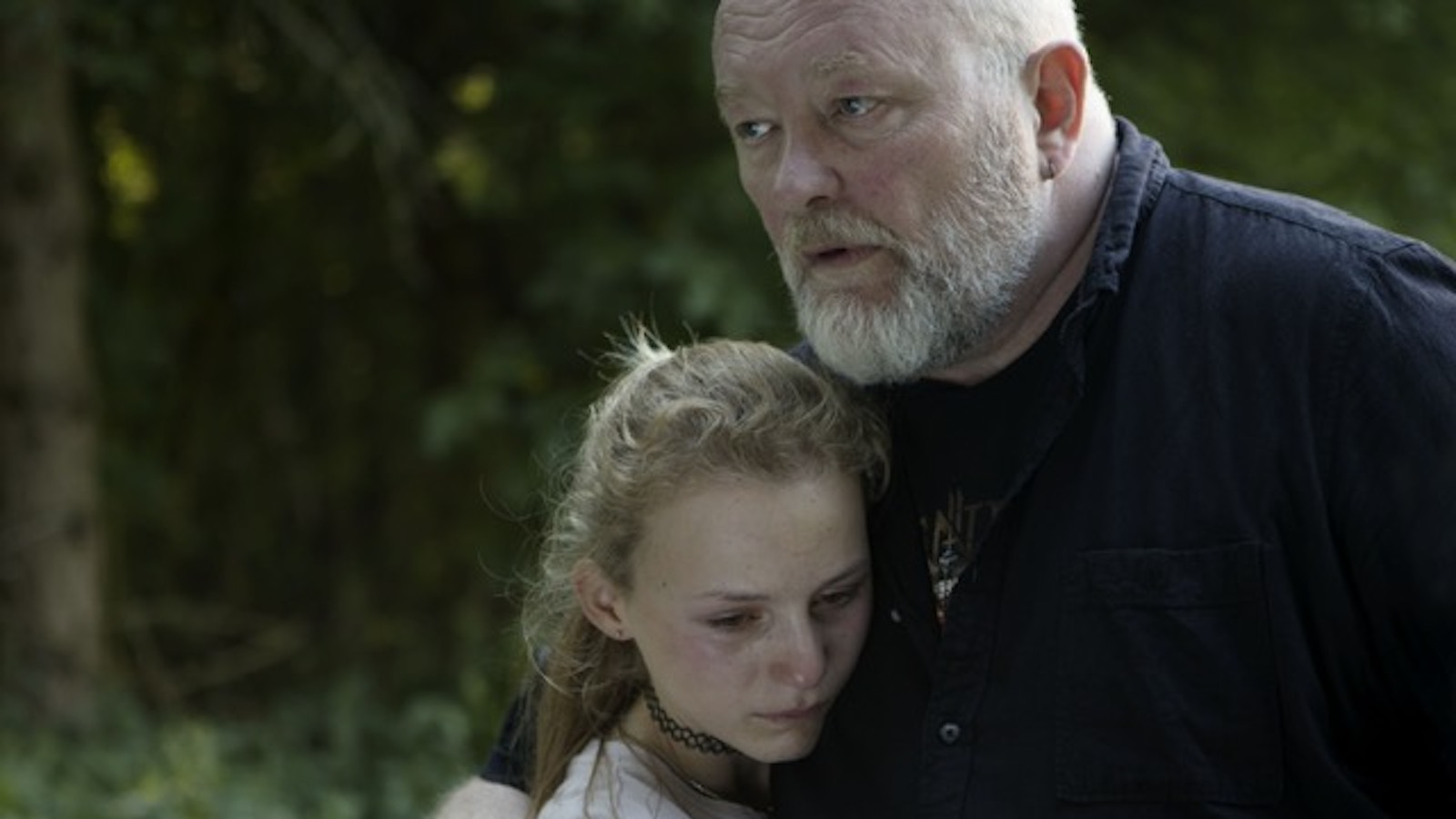Cry Wolf opens on a social worker visiting a school where a strange 14-year-old girl, Holly (a stellar Flora Lindahl), has written an essay (the subject: “A day in my life”) about her stepfather physically abusing her. Holly is soft spoken, she rarely smiles, and she constantly appears on high alert, like even the slightest wrong move would cause a breakdown. She also seems disengaged, almost hollowed out. She could just be a highly anxious regular teenager, they say stuff that isn’t true all the time, and she clearly doesn’t like the hold her stepdad has on her mother. So when the social worker, Lars (Bjarne Henriksen, who is the victim’s dad in the Nordic noir series that started it all, The Killing), sets the child endangerment machine in motion, you almost feel as though he’s moving too fast. “Did you experience these things?” he asks. “Yes,” Holly says. But she has no bruises. When Lars asks if she has ever confronted her dad, she says, “He just says we’re ganging up on him.” Are they? Why doesn’t Lars ask her more direct questions? Why does he keep her in that classroom? Why does he speak to her little brother, who is too young to really help? Why does he keep her mother separate from them both? Why is no one talking to the stepdad? Isn’t this all a bit rash? At this point I was less worried about the accused than I was about how these kids, this whole family unit, would fare if all of this ended up being ... impulsive.
As the episodes progress, the doubt just keeps building. Though the stepdad, Simon (Peter Plaugborg), does look like a literal 8th-century Viking etched from stone, it’s unfair to physically pigeonhole, right? Sure, he has a bit of an aggressive air, but he also seems very emotionally mature, like one of those gentle giants who is just a little mean around the eyes. Both he and his wife, Dea (Christine Børge), swear up and down that he would never hurt the kids. “Holly is struggling,” Dea says vaguely as an explanation for her daughter’s actions. Simon does have a couple assault convictions, but it isn’t clear what they are. And the family has moved around quite a bit, but that happens. There’s also, well, apparently Holly has lied before. She also doesn’t want the police involved. And she won’t accuse her stepfather on a taped deposition he is allowed to see. In a separate taped deposition, her little brother, who has a broken arm consistent not with a beating but a fall, says not to believe her. Holly also contacts her mom even when she’s told not to. She lies to make friends. She froze out her biological dad not too long ago. It starts to look like one of those rare cases where a clingy kid might be lobbing accusations of abuse for selfish reasons. The head social worker even asks if she might be borderline, which I was asking way earlier. Not to mention Lars, who is so intent on separating this family, seems to be erring on the side of caution because he’s been wrong before. And that mistake cost lives.
And, honestly, we have NEVER seen Simon hit anyone. And Holly is STRANGE.
“It is almost like boxing. All the way through editing, we explored how much to tell in one direction or the other,” the Danish show’s creator, Maja Jul Larsen, told Variety three years ago, when Cry Wolf first aired (it has yet to be released in the US). “We’ve thought a lot about the expression ‘truth is in the eye of the beholder,’ and have applied it both visually and in terms of the characters.” Larsen didn’t write the eight-part series until she had spent a year researching, speaking to social workers, parents, lawyers, and psychologists. The cases in which there was a lack of concrete evidence really struck her. “The decisions from the care system are basically based on the social worker’s experience and intuition,” she said. “I wanted to make this quite clear and this is why Lars moves so fast to remove the children. His colleagues and boss trust his judgment.”
Eventually, Holly recants. It turns out she did lie. She wasn’t being hit. Her mother was. Over and over and over again. Holly was protecting her. This 14-year-old girl had tasked herself with saving not just her own life, but the lives of her mother and her younger brother when no one else would, or could. The reason Holly is so monosyllabic, so unsmiling, so anxious, is because she is constantly on edge. She has been taught by her mother over the years to change her behavior to accommodate her father’s volatility. That means acting virtually non-existent. And Simon, well, his father was an alcoholic who turned up at his school drunk when he was a kid. That’s his excuse. “They all have their own truth and they’re all lying to themselves in different ways,” says Larsen. “This is a story about the system, only humans work in this system, and they have their own difficult pasts and traumas.”
The most harrowing scene in Cry Wolf comes in the final episode, when the stepdad does finally get physical with Holly. Her mom quickly intervenes and Simon, in the kind of rage that seems unstoppable, throttles his wife to the point that she pisses herself as he screams over and over, “This stops now!” And it does. This moment, along with the preceding chain of events set off by her daughter, seems to finally rock Dea into consciousness, and she grabs her kids and runs. But it is Holly who calls Lars, who takes them to a shelter. And this is finally the moment the teenager seems to relax. “Hold on to yourself at all times, Holly,” Lars says after she thanks him. “Remember to live your own life and not other people’s.”
Normally, this is where a show like Cry Wolf would end. With the victims having some measure of peace, if not complete catharsis. And it does end with Holly staring out to sea, but not before it deals with the stepdad. In the scene in question, Simon is sitting in some holding room, about to be sent off to jail. Earlier on in the episode, when he was wildly casting about for his missing family, when he charged into Lars’s offices, Lars told him: “We’ve all had shitty childhoods. But you make your own choices later on.” In their final scene together, Lars repeats what, upon rewatching the first episode, I noticed he had said multiple times: that a social worker doesn’t just help one person, but the whole family. This harks back to Larsen’s very Scandinavian approach of addressing abuse within a system, rather than simply presenting abusers as discrete from the world around them. “Do you want my help?” he asks Simon. Plaugborg is great here. He literally shakes his head no, in an almost unconscious impulse not to back down. But then he crumbles. And that’s when he nods yes. In response, Lars says only one word, “Good.” Like the moment itself, it’s small, but huge.






